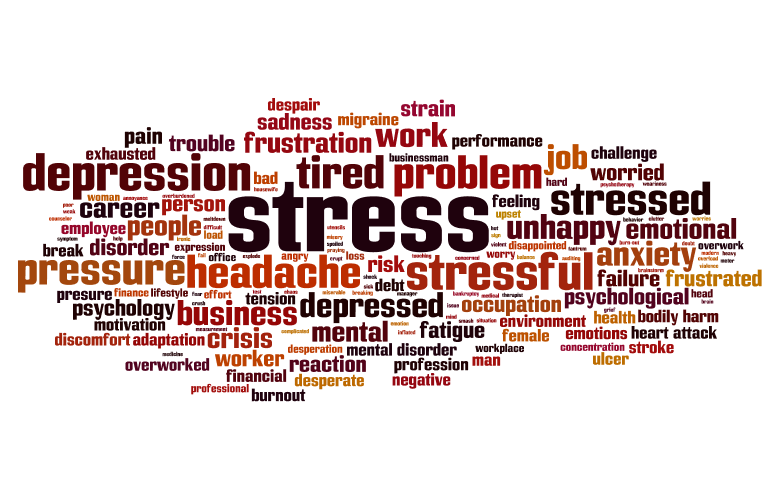
Stress and your health
Everyone feels stress from time to time, and some of us feel it more than others. Stress can creep up on us anywhere, at work, school, or when we get overwhelmed, anxious, or life just get’s too busy. Generally, every day stress is manageable and once it passes, we carry on as normal. The problem comes when stress is recurring or long term, or when it brings unwanted physical symptoms.
Stress and anxiety can affect different parts of the body – from headaches to high blood pressure and sleep disorders. Being aware of how stress affects your health can help identify the problem. Let’s look at some of the most common ways stress affects our physical and mental health…
Headaches
Stress can cause the muscles of the neck and upper back to tense up leading to tension headaches. Constant anxiety can also result in painful migraine headaches that can last for hours or even days.
Muscle tension and pain
Muscle tension is a normal reaction to sudden stress, it’s part of the ‘fight or flight’ response and usually passes once the stress has gone. Chronic stress causes the muscles to be tense and taut for long periods of time which can lead to tenderness and pain in areas like the shoulders, neck, and back.
Weight and metabolism
Stress and weight problems often go hand in hand. Feeling stressed and anxious can cause us to search for relief in food. Unfortunately, that often means comfort foods that are high in sugar, fat, and calories. Additionally, stress can have a damaging effect on our metabolism causing our bodies to store more fat.
Blood pressure
Chronic stress can result in high blood pressure. This is because stress hormones increase the heart rate and over time this can lead to constricted arteries. Untreated, high blood pressure can lead to heart attack and stroke. If you experience chest pain, talk to a doctor immediately.
Rise in blood sugar
Just like stress can raise your blood pressure, it can also raise your blood sugar levels too. When you’re experiencing stress, stress hormones called cortisol and adrenaline are released that increase your blood sugar. If you’re consistently under stress, your hormones and sugar levels will continue to rise.
Lowered immunity
Having long term stress can affect your immune system and make you more vulnerable to illnesses like colds and viruses. This can make it more difficult to keep up with the demands of daily life, which can further increase your stress.
Sleep problems
Feeling stressed often results in a poor night’s sleep because the mind continues working when it should be shutting down. Often this intensifies our stress and makes it even tougher to relax and fall asleep leading to a vicious circle of stress-poor sleep-more stress.
Depression
Long term stress can be overwhelming, leading you to feel angry and depressed. Over time, stress can leave you feeling trapped and unable to think clearly or make decisions.
Recognizing your stress
We all respond to stress differently. Recognizing your personal stress responses is an important part of protecting your physical and mental health.
Self-awareness. Look at how you currently deal with stress, what do you do well, and what don’t you do so well?
Self-care. Eat regular healthy meals. Exercise daily and aim to get enough good quality sleep. Set aside time to relax and pamper yourself.
Social Support. Friends, family, and colleagues can be a valuable source of support. If you don’t feel you can turn to one of them, look at joining a club or support group.
Know when to ask for help. If you think that life’s stress is taking a toll on your physical or mental health, talk to your healthcare provider so you can look at making changes that will be good for your body and mind.
<b>Medical Disclaimer</b>
The articles provided on this website are for informational purposes only. In addition, it is written for a generic audience and not a specific case; therefore, this information should not be used for diagnostic or medical treatment. This site does not attempt to replace the patient-physician relationship and fully recommends the reader to seek out the best care from his/her physician and/or diabetes educator.







